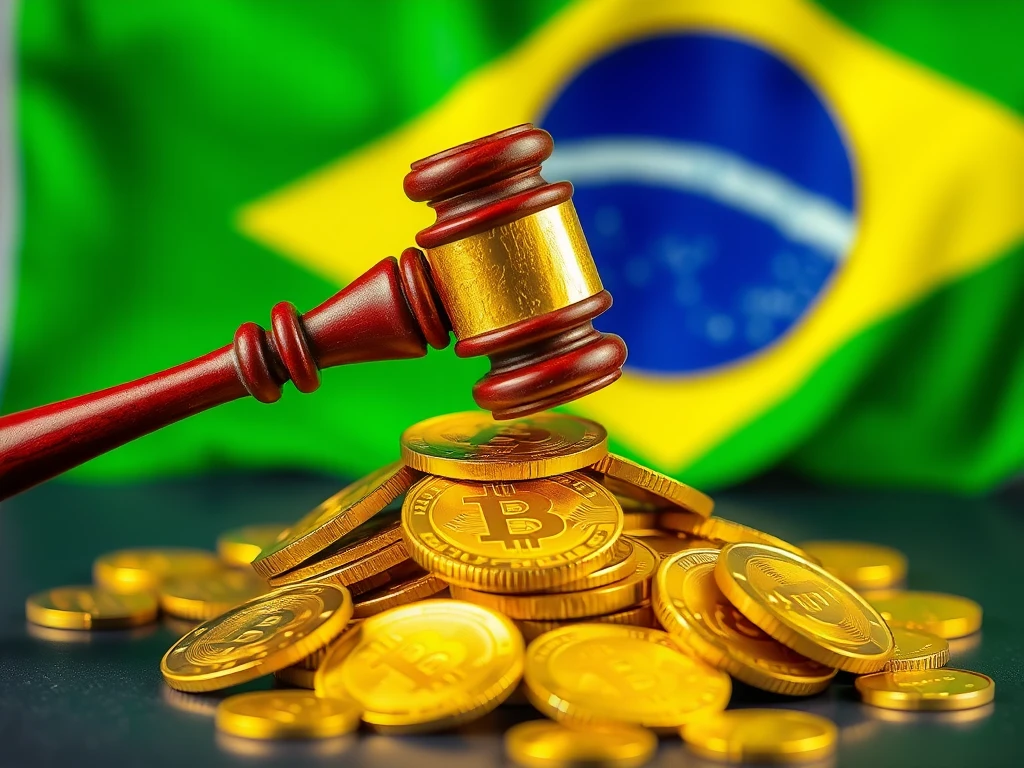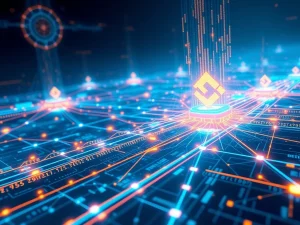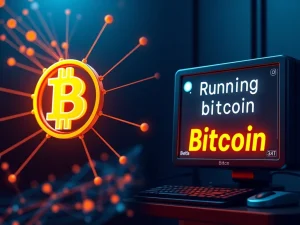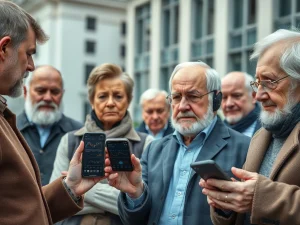Landmark Ruling: Brazilian Court Authorizes Crypto Seizure for Debt Collection

In a landmark decision, Brazil’s legal system has taken a significant step towards recognizing cryptocurrencies as legitimate assets for debt recovery. Imagine a scenario where traditional assets like bank accounts are no longer the only targets for debt collection. Now, in Brazil, cryptocurrencies are in the crosshairs too! The Brazilian Superior Court of Justice has just authorized the seizure of crypto assets to settle outstanding debts. This move signals a maturing understanding of digital currencies and their role in the financial landscape. Let’s dive into what this groundbreaking ruling means for crypto holders and the broader implications for Brazil crypto regulation.
Why is Crypto Seizure Now Authorized in Brazil?
The core of this decision lies in the Brazilian court’s recognition of cryptocurrencies as both a form of payment and a store of value. The Third Panel of Brazil’s Superior Court of Justice made a unanimous decision, empowering judges to issue orders to cryptocurrency brokers. These orders essentially inform exchanges about the court’s intention to seize crypto assets from account holders who are in debt. Think of it like this:
- Recognition as Value: The court officially acknowledges that cryptocurrencies hold tangible value, just like traditional currencies or stocks.
- Extending Existing Powers: Brazilian law already allows judges to freeze bank accounts for debt recovery. This new ruling simply extends this power to include crypto assets.
- Creditor Protection: This move is a win for creditors, providing them with a new avenue to recover funds owed to them in an increasingly digital economy.
Minister Ricardo Villas Bôas Cueva of the five-person panel highlighted that while Brazil crypto regulation is still evolving, existing bills already recognize crypto as a “digital representation of value.” This legal interpretation paves the way for treating crypto assets similarly to other forms of property in debt disputes.
Debt Collection Crypto: How Will This Actually Work?
So, how will Brazilian courts actually go about seizing cryptocurrencies? The process is expected to mirror the existing procedures for traditional asset seizure. Here’s a simplified breakdown:
- Court Order: A creditor initiates legal proceedings to recover debt. If successful, the court issues an order to seize assets.
- Broker Notification: Judges will send official notices to cryptocurrency brokers operating in Brazil.
- Asset Freezing/Seizure: Upon receiving the notice, exchanges will be legally obligated to freeze and potentially transfer crypto assets from the debtor’s account to satisfy the debt.
- Legal Framework Alignment: This process aligns crypto assets with traditional financial assets, making them subject to the same debt collection crypto mechanisms.
This streamlined approach aims to integrate cryptocurrencies into the existing legal framework for debt recovery, making the process relatively straightforward once the legal wheels are in motion.
Cryptocurrency Brazil: A Growing Hub Despite Regulatory Uncertainty
Despite the lack of a comprehensive, overarching regulatory framework, Brazil is rapidly becoming a significant player in the global crypto space. Consider these points:
- Latin American Leader: Brazil ranks second in Latin America for “crypto value received,” a strong indicator of adoption. Argentina is the only country in the region with higher penetration.
- Binance Expansion: Major crypto exchanges like Binance are establishing a stronger presence in Brazil, seeing significant potential in the market. Binance even received approval to operate in Brazil after acquiring a local investment firm.
- Anticipated Regulation: Industry experts believe that Brazil crypto regulation is progressing, with expectations of a more comprehensive framework being finalized soon.
However, it’s not all smooth sailing. Proposed regulations, like the central bank’s suggestion to ban stablecoin transactions on self-custodial wallets, indicate ongoing debates and potential challenges for the industry. Enforcing such bans, especially in the decentralized crypto space, remains a significant hurdle.
Impact of Brazil Court Crypto Ruling: Pros and Cons
This new ruling by the Brazil court crypto has both positive and negative implications:
| Pros | Cons |
|---|---|
| Increased Creditor Confidence: Provides creditors with more options for debt recovery, potentially boosting economic activity. | Potential for Overreach: Concerns about potential overreach and errors in crypto asset seizure, especially given the nascent stage of crypto regulation. |
| Legitimization of Crypto: Further legitimizes cryptocurrencies as recognized assets within the legal and financial system. | Complexity in Enforcement: Challenges in accurately identifying and seizing crypto assets across different exchanges and wallet types. |
| Regulatory Clarity (in one aspect): Brings a degree of clarity to how crypto assets are treated in debt recovery scenarios, even if broader Brazil crypto regulation is still developing. | Privacy Concerns: Potential implications for the privacy of crypto holders as their assets become more easily accessible for legal proceedings. |
Looking Ahead: The Future of Crypto and Brazilian Law
The Brazilian court’s decision to authorize crypto seizure is a significant step in the ongoing evolution of crypto regulation globally. It demonstrates a growing understanding and acceptance of digital assets by traditional legal systems. As cryptocurrency Brazil adoption continues to rise, we can expect further developments in regulation and legal frameworks to keep pace. This ruling serves as a crucial precedent, potentially influencing how other jurisdictions approach the intersection of crypto and law. It’s a clear signal that cryptocurrencies are no longer operating outside the bounds of traditional finance in Brazil, and their integration into the established legal system is only set to deepen.









